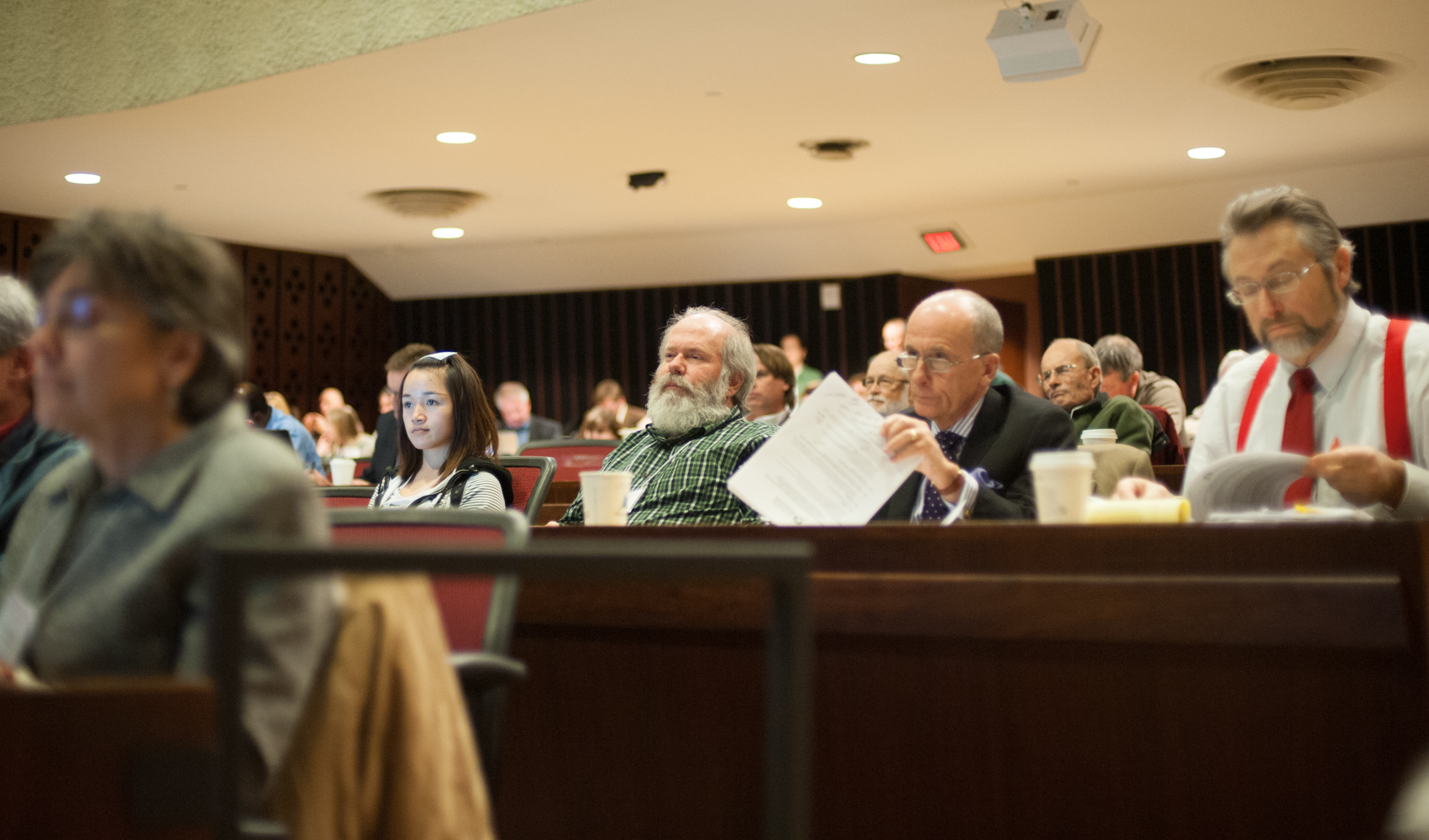
On February 4, the School of Natural Resources hosted a town hall meeting to discuss the current National Climate Assessment draft report’s findings, especially those that particularly impact the Great Plains region. Representatives from more than 70 organizations from around the Great Plains attended to learn about the assessment’s findings and to contribute to the on-going discussion about the climate assessment process.
The all-day event focused on various findings from the report, the methods for sustained assessment, and the means by which to submit comments and recommendations for this and future NCA drafts. Speakers included the National Climate Assessment Chief of Staff, Glynis Lough, contributing authors Shannon McNeeley, Gene Takle, Roger Kroh, and Bob Gough, as well as numerous expert commentators. The day also featured topical small-group discussions to collaboratively address sustained assessments and the means of transitioning the draft into tools for informing policy decisions.
Don Wilhite, professor of applied climate science at UNL’s SNR, acted as general moderator for the town hall meeting. Wilhite said his hopes for the day were to increase involvement from various groups and organizations towards a broader and sustained assessment. “As we move forward,” said Wilhite, “I hope more people and groups will be able to contribute to future assessments.”
The National Climate Assessment is a collaboratively written report that seeks to inform “the nation about already observed changes, the current status of the climate, and anticipated trends for the future.” The current assessment is in draft form until experts and communities have a chance to review the content and submit feedback to the NCA Development Advisory Committee. Feedback will be accepted through April 12, 2013 at 5 p.m. EST.
The NCA emerges out of the Global Change Research Act of 1990, which determined that at least every four years the federal government would produce and release a report about the observable changes in the environment, the current status of the national and regional climate in the various parts of the United States, and the foreseeable climatic trends given current observations. This quadrennial assessment, written by approximately 240 authors from academic, governmental, private and nonprofit sectors, is not policy prescriptive. Instead, it seeks to inform individuals and communities about observable climatic trends to empower stakeholders to form their own responses to climate changes.
“I think many hoped to see recommendations from the report that are more policy prescriptive,” said Wilhite. “But that isn’t the charge to the National Climate Assessment team and the authors.”
Adaptation to climate change became a substantial theme during the town hall. Several of the topical small-group discussions highlighted the significance of preparedness in the face of emerging weather trends.
“Why should we be concerned?” asked SNR Interim Director Tala Awada during her concluding remarks. “Because ultimately climate change affects our quality of life.”
Glynis Lough said that she was very pleased by the diversity of attendees. “We want to keep the conversation going and to create outcomes and products that help promote participation. I’m excited to have more names and more people to partner with in the future.”
Monday’s event was one of several regional town hall meetings held, throughout the United States, to respond to the current NCA draft. It was the largest NCA regional town hall meeting to date.
“The growing frustration with the lack of attention to this issue by Congress is clear,” said Wilhite. “We also need a lot of additional research on the broad topic of climate change. We also need to do a much better job of communicating the science, impacts, and policy responses to the public and our elected officials.”
Wilhite added, “Climate change will affect so many sectors and many aspects of the environment that we must bring all stakeholder groups together to find solutions that are in the best interest of society, whether viewed locally or globally.”
The final draft of the third National Climate Assessment is due to be released as an e-book in early 2014.
More details at: http://go.unl.edu/bjx